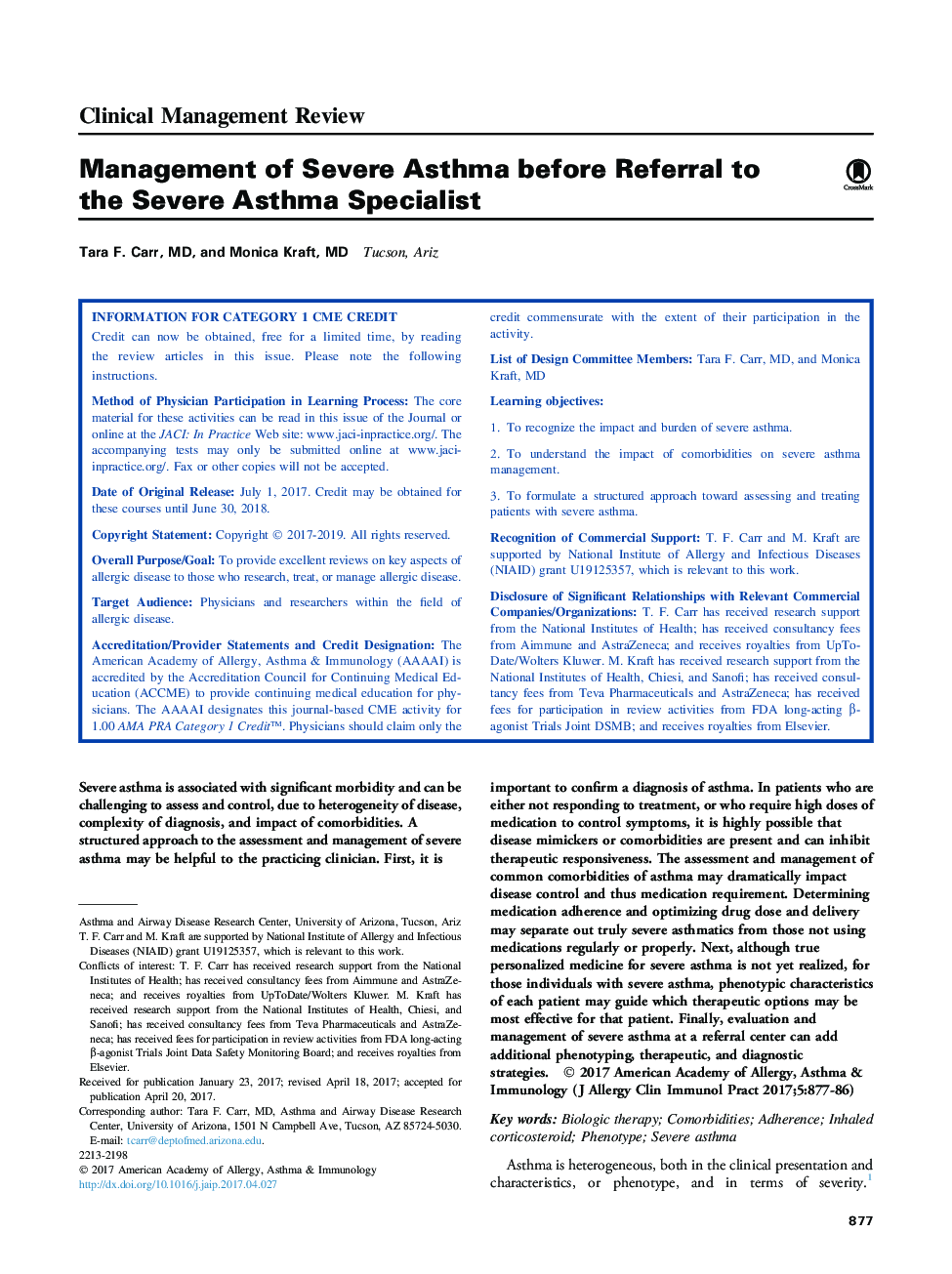| Article ID | Journal | Published Year | Pages | File Type |
|---|---|---|---|---|
| 5647614 | The Journal of Allergy and Clinical Immunology: In Practice | 2017 | 10 Pages |
Abstract
Severe asthma is associated with significant morbidity and can be challenging to assess and control, due to heterogeneity of disease, complexity of diagnosis, and impact of comorbidities. A structured approach to the assessment and management of severe asthma may be helpful to the practicing clinician. First, it is important to confirm a diagnosis of asthma. In patients who are either not responding to treatment, or who require high doses of medication to control symptoms, it is highly possible that disease mimickers or comorbidities are present and can inhibit therapeutic responsiveness. The assessment and management of common comorbidities of asthma may dramatically impact disease control and thus medication requirement. Determining medication adherence and optimizing drug dose and delivery may separate out truly severe asthmatics from those not using medications regularly or properly. Next, although true personalized medicine for severe asthma is not yet realized, for those individuals with severe asthma, phenotypic characteristics of each patient may guide which therapeutic options may be most effective for that patient. Finally, evaluation and management of severe asthma at a referral center can add additional phenotyping, therapeutic, and diagnostic strategies.
Keywords
DPIFEV1MMADLong-acting muscarinic antagonistsVCDCRSABPAFVCGERDSABAICSAERDHFAFEF25-75FeNOLAMASevere asthmaAllergic bronchopulmonary aspergillosisAspirin-exacerbated respiratory diseaseLong-acting β2-agonistShort-acting β2-agonistVocal cord dysfunctionfractional exhaled nitric oxideChronic obstructive pulmonary diseaseCOPDAdherenceBiologic therapyGastroesophageal refluxChronic rhinosinusitisLABAforced vital capacityPhenotypeforced expiratory volume in 1 secondComorbiditiesHydrofluoroalkaneDry powder inhalerInhaled corticosteroid
Related Topics
Life Sciences
Immunology and Microbiology
Immunology
Authors
Tara F. MD, Monica MD,
